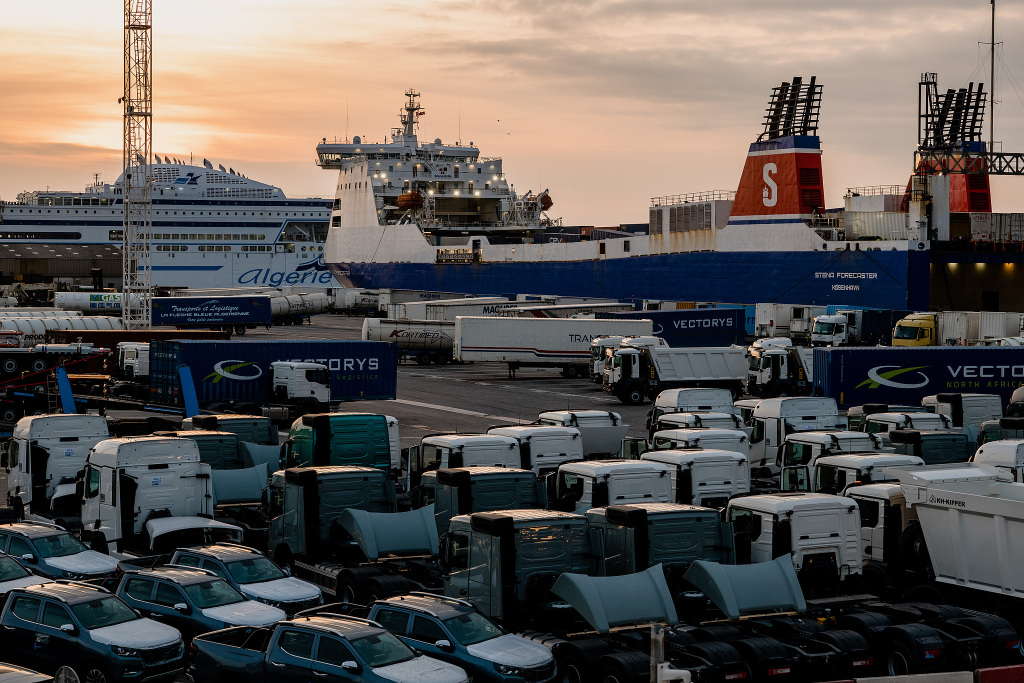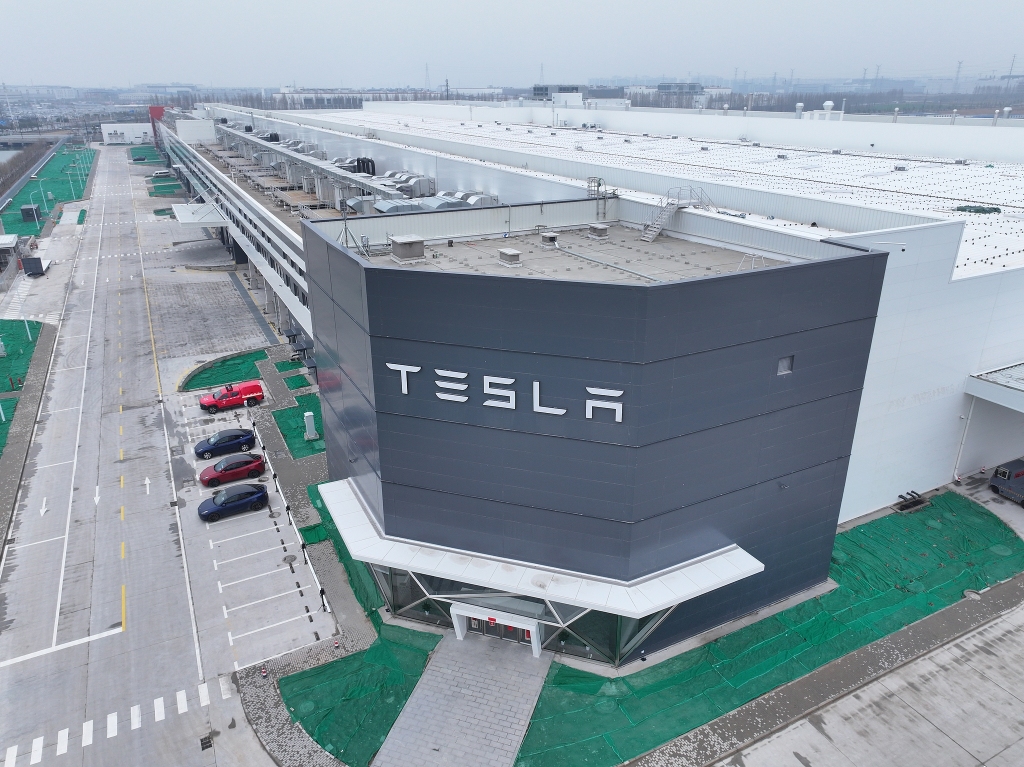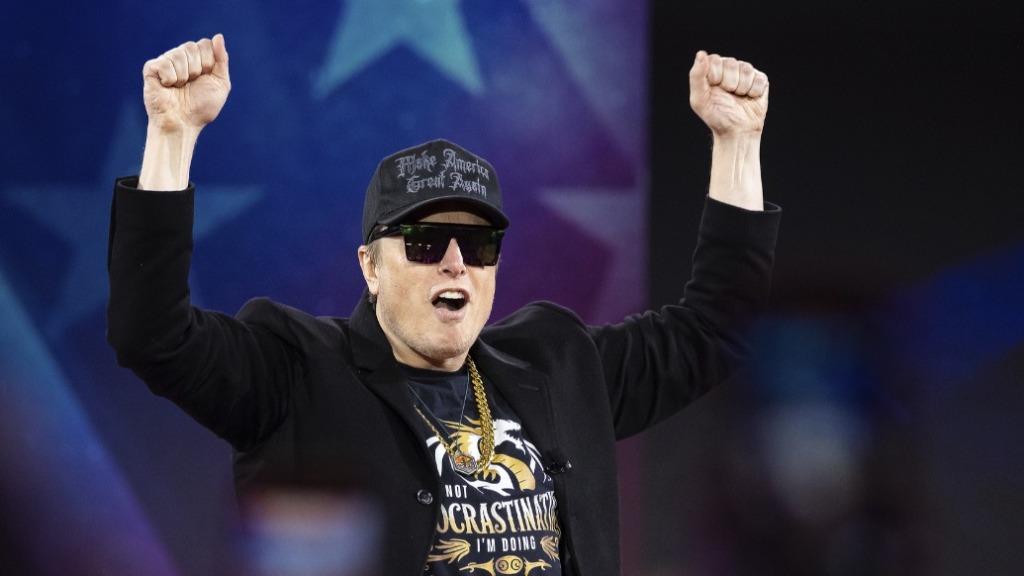
The new tariff policy that the global automotive industry has been worried about has finally arrived.
On March 26, local time, US President Trump signed an executive order announcing a 25% tariff on all imported cars and light trucks. The new rules will officially take effect on April 2. According to White House documents, the tariffs are implemented in the name of "national security" in accordance with Section 232 of the Trade Expansion Act and apply to passenger cars, light trucks and key parts (such as engines and transmissions). Under the framework of the United States-Mexico-Canada Agreement (USMCA), importers can certify the value of the US-produced parts to reduce the tariff rate.

Commercial ships are docked near newly produced Volvo AB trucks and other vehicles at the Port of Marseille, France, on February 18, 2025. U.S. President Trump said he may impose tariffs of about 25% on imports of cars, semiconductors and medicines, and plans to make an announcement around April 2.
Canadian Prime Minister Carney called the move a "direct attack on Canada's auto industry" and announced the establishment of a 2 billion Canadian dollar (about 1.4 billion U.S. dollars) "strategic response fund" to enhance the competitiveness of the local supply chain and protect jobs. According to the French Center for International Economic Research Cepii, the measure will lead to a 71% and 57% drop in production in Canada and Mexico, respectively. According to Bloomberg Industry Research analysts, the main victimized auto brands are expected to be Volkswagen and Stellantis, which have moved part of their production operations to Mexico and Canada to supply the U.S. market.
European Commission President Ursula von der Leyen criticized the tariffs as "contrary to the principles of free trade," and the German Association of the Automotive Industry warned that the move would hit European automakers hard, as the EU's auto exports to the United States amount to 38.4 billion euros, with German brands dominating.
Japanese Prime Minister Shigeru Ishiba said that "all countermeasures are under consideration", and the South Korean government plans to request consultations with the WTO. Brazilian President Lula said that tariffs "hinder global trade", and the Japanese Ministry of Economy, Trade and Industry stressed that the US-Japan trade agreement may be violated.
Although Trump claimed that tariffs would promote "manufacturing repatriation", American automakers have generally suffered setbacks.
GM and Ford's share prices fell 3.1% and 3.7% respectively on the same day, while Tesla's share price fell 5.8%. Ford CEO Jim Farley pointed out that 60% of the company's vehicles rely on Mexican factories for supply, and tariffs will lead to production disruptions and layoffs.
Goldman Sachs predicts that if the costs cannot be passed on, the profits of Japanese automakers may be "cut in half". Nissan and Mazda's operating profits may fall by as much as 66% and 34%, respectively, while Toyota and Honda face losses of 570 billion yen and 350 billion yen, respectively.
Gary Hufbauer, a senior fellow at the Peterson Institute for International Economics, pointed out that tariffs will lead to "massive layoffs" in the U.S. auto industry and suppress consumer demand.
Analysts said that the supply chains of the United States, Canada and Mexico were originally highly integrated. In order to avoid tariffs, a vehicle may need to travel back and forth between the United States, Canada and Mexico 7-8 times to complete assembly in the future, which will reduce efficiency and increase costs.
Although Tesla assembles its vehicles in the United States, its battery materials are imported. CEO Musk bluntly stated that tariffs will significantly increase the cost of components and have a "significant impact" on Tesla. However, some analysts pointed out that although the purpose behind the Trump administration's imposition of auto tariffs is still unclear, Tesla may be the winner of this auto tariff, at least it is less affected than other competitors.
Foreign media reported that Tesla's Model Y and Model 3 were the two best-selling electric vehicles in the United States last year, but now their market share is being taken by General Motors' Chevrolet Equinox EV and Ford's Mustang Mach-E. Tesla's cars sold in the United States are all produced in California and Texas, so they are limited by auto tariffs. In contrast, the latter two electric cars are produced in Mexico, and in theory, their prices may increase significantly due to tariff policies.
Trump's auto tariff policy has not only exacerbated trade frictions with allies, but also exposed the fragility of the U.S. auto industry chain. Although the White House claims that this move is aimed at revitalizing the manufacturing industry, multiple analyses show that the costs will ultimately be borne by U.S. consumers, while also impacting the stability of the global supply chain. The European Union and Canada have already launched countermeasures, and the global layout of U.S. automakers may also suffer a backlash.


